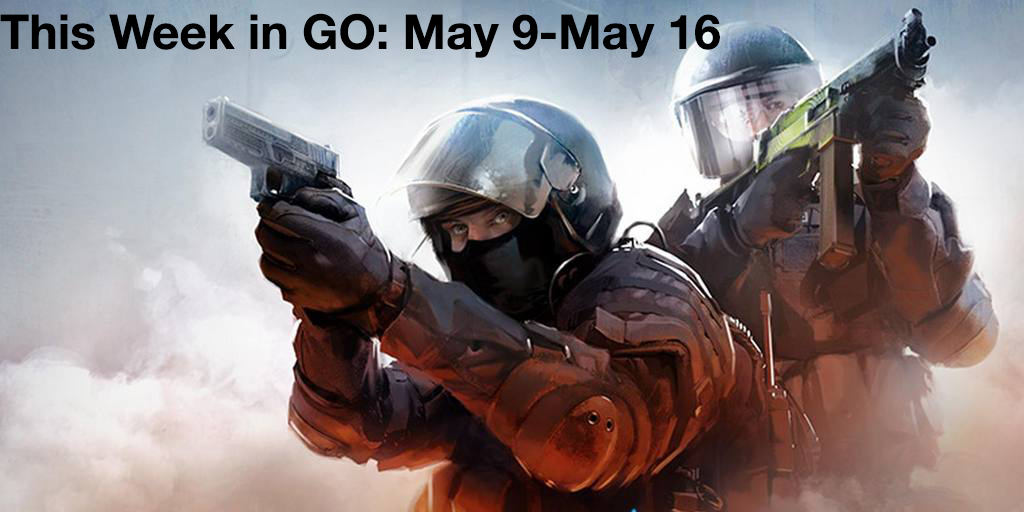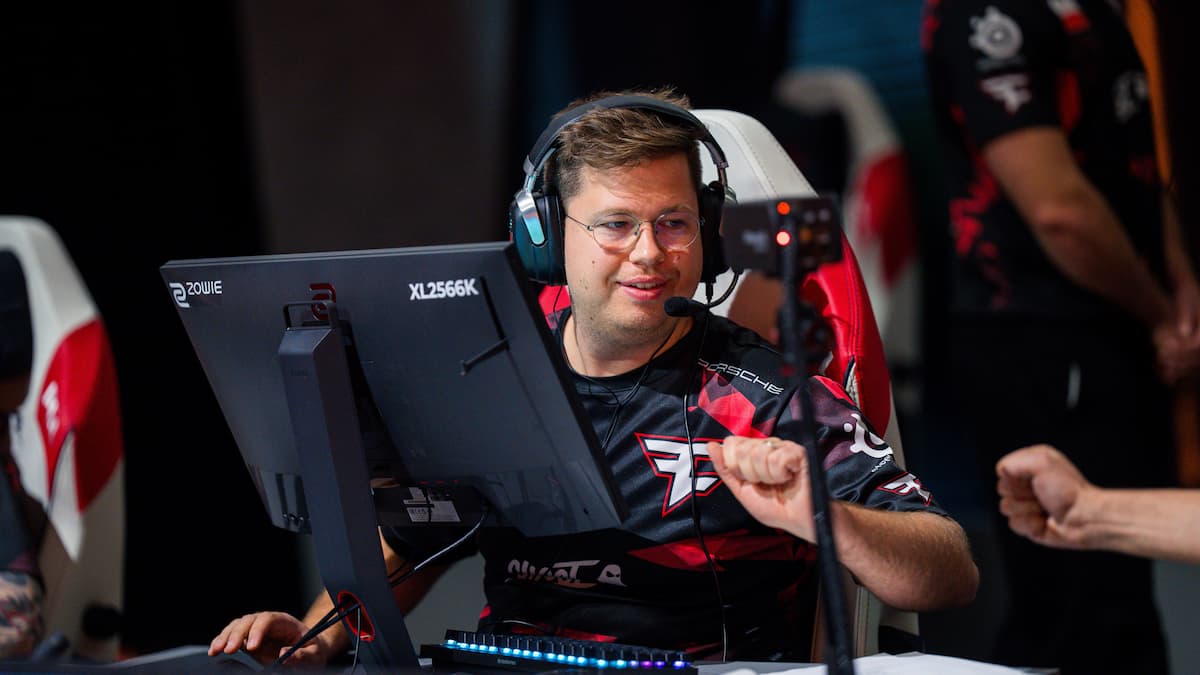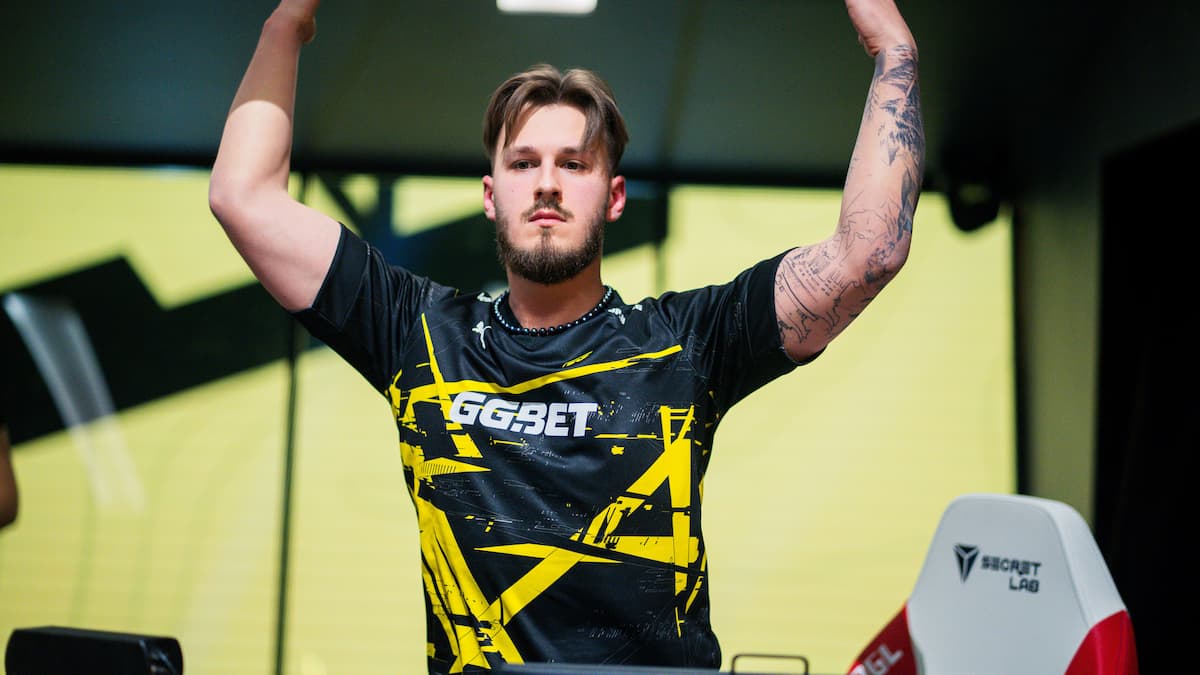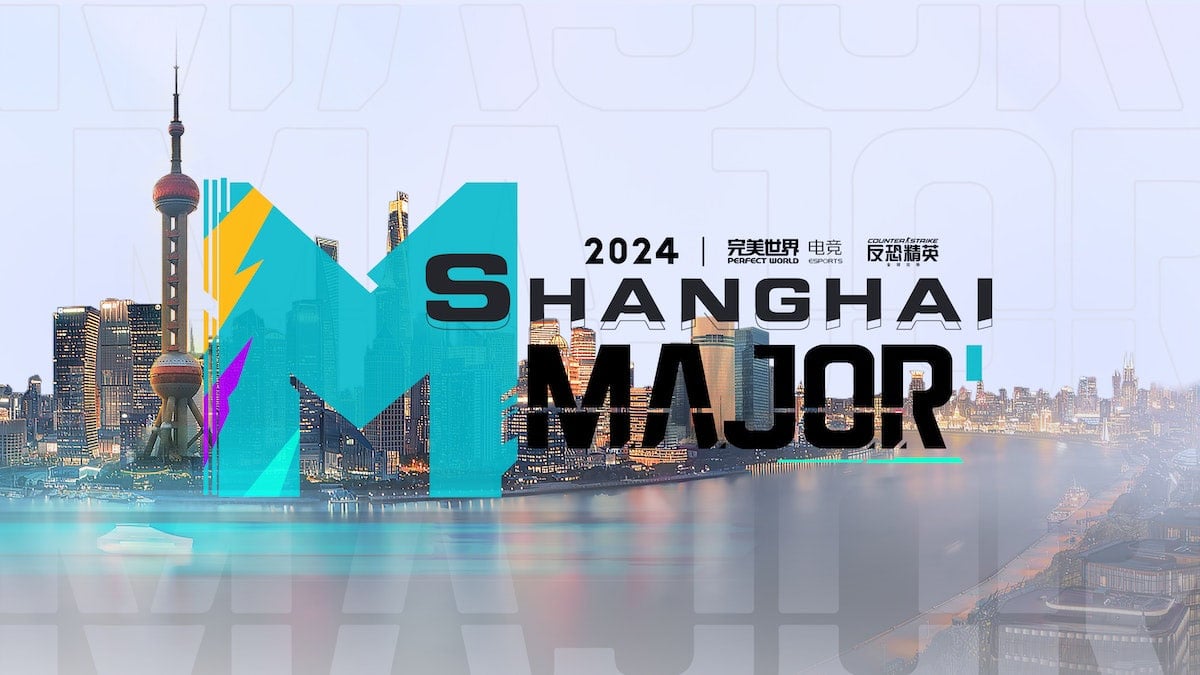This week I cover: WESA, ESL Pro League Season 3 Finals, and North American Roster Changes. WESA: ESL Says no to Competition  In order to not use the ideas of others who have also covered this issue, I am specifically looking at one particular area of WESA. For an overview of the entire WESA structure and why you should be concerned, check out Thorin’s video, and Richard Lewis’s video on the topic. Also, check out Mewyabby’s article on WESA. Let me start off by saying that it is possible that I am wrong on these connections, as many of the specifics I address are not confirmed by multiple parties. The WESA organization has not been 100% transparent about the specifics of the negotiations. These are simply my thoughts and conjectures about how WESA could possibly lead to exclusivity. Even if this was the inital plan of WESA, some of these things may not come to fruition due to the backlash they have received from the community. If the direction of the organization changes, and certain speculations are not fulfilled, that does not neccesarily mean that those actions were the initial plans of WESA. Okay, let’s take a look at this… The announcement of WESA – World Esports Association- was carried out by ESL earlier this week, and was received with criticism and concerns from players, analyst, and organizers alike. The announcement claims that WESA will attempt to “standardize tournament regulations,” create “player representation,” and develop “revenue sharing for teams.” These all sound like positive terms on the surface; but, concerns have been raised over whether or not WESA teams will be excluded from non-WESA regulated events. These concerns were addressed in a reddit AMA conducted by the founders of WESA. In it, WESA claimed that “Teams are not restricted from participating in non-WESA sanctioned tournaments or leagues – just as non-WESA teams will also be capable of participating in WESA sanctioned events.” So if WESA is not exclusive, but just acts as a communication tool and governing body for disputes between teams, what are the problems? Well, simply being non-exclusive does not mean that WESA will not limit teams participation in events. If two events were scheduled for similar times so that a team could not go to both, WESA would decide which event is attended by the team. With strong ties to ESL, it seems that WESA will be inhenetly biased towards events hosted by ESL and its partners, even if the quality of the event is lesser. WESA is more than a body for players to get a voice. It seems to me that hidden behind the shroud of player representation and profit sharing, there is a very obvious attempt by ESL to create a platform which will eliminate any form of competition between their events and those of other organizers. On the WESA website, they claim:
In order to not use the ideas of others who have also covered this issue, I am specifically looking at one particular area of WESA. For an overview of the entire WESA structure and why you should be concerned, check out Thorin’s video, and Richard Lewis’s video on the topic. Also, check out Mewyabby’s article on WESA. Let me start off by saying that it is possible that I am wrong on these connections, as many of the specifics I address are not confirmed by multiple parties. The WESA organization has not been 100% transparent about the specifics of the negotiations. These are simply my thoughts and conjectures about how WESA could possibly lead to exclusivity. Even if this was the inital plan of WESA, some of these things may not come to fruition due to the backlash they have received from the community. If the direction of the organization changes, and certain speculations are not fulfilled, that does not neccesarily mean that those actions were the initial plans of WESA. Okay, let’s take a look at this… The announcement of WESA – World Esports Association- was carried out by ESL earlier this week, and was received with criticism and concerns from players, analyst, and organizers alike. The announcement claims that WESA will attempt to “standardize tournament regulations,” create “player representation,” and develop “revenue sharing for teams.” These all sound like positive terms on the surface; but, concerns have been raised over whether or not WESA teams will be excluded from non-WESA regulated events. These concerns were addressed in a reddit AMA conducted by the founders of WESA. In it, WESA claimed that “Teams are not restricted from participating in non-WESA sanctioned tournaments or leagues – just as non-WESA teams will also be capable of participating in WESA sanctioned events.” So if WESA is not exclusive, but just acts as a communication tool and governing body for disputes between teams, what are the problems? Well, simply being non-exclusive does not mean that WESA will not limit teams participation in events. If two events were scheduled for similar times so that a team could not go to both, WESA would decide which event is attended by the team. With strong ties to ESL, it seems that WESA will be inhenetly biased towards events hosted by ESL and its partners, even if the quality of the event is lesser. WESA is more than a body for players to get a voice. It seems to me that hidden behind the shroud of player representation and profit sharing, there is a very obvious attempt by ESL to create a platform which will eliminate any form of competition between their events and those of other organizers. On the WESA website, they claim:
WESA teams will participate in offline events based on their scheduling and standards developed through the Association. Additionally, WESA teams will participate in other leagues, whose schedules have been balanced prior to today’s announcement with ESL Pro League.
Who is developing these standards one might ask? That would be the WESA executive board, whose job, according to the WESA site, is to “manage the day-to-day affairs of WESA.” Okay, this seems reasonable enough; there have been so many LANS that teams need to sometimes make choices about which ones to attend, after all the WESA executive board is surely made up of a third party not directly connected to any specific tournament organizer. Oh wait, ESL members make up 40% of the board, and have also elected the league commissioner, therefore getting 60% of a vote. Also, the other 40% of the board is consists of owners of WESA teams. So in the case of developing standards and scheduling for events, I wonder who will get prioritized? The answer is most likely ESL and its affiliates. This raises the question of, why teams would want to be locked into contracts where they must compete in prioritized ESL events? Surely it may be possible for other organizers to hold events with more exposure and larger prize pools at the same time as an ESL event, and being delegated to the inferior event would limit the team’s capacity for growth. Well, a spot in WESA wasn’t granted without a little due compensation to the team owners. Along with that good old “revenue sharing” WESA teams were allegedly also granted a $150,000 signing bonus for entering the organization. It seems that it does not just involve ESL, but also all the organizers owned by MTG. Representatives from CEVO, MLG, STARLADDER, and Gfinity all stated via twitter that they were not contacted to be involved in WESA. But wait, where are the statements from Dreamhack and ESEA? Why would they not be concerned about being excluded from WESA? Well, Dreamhack, ESEA, and Turtle entertainment are all owned by MTG. Turtle entertainment owns both ESL and WESA, as the Domain for the WESA site is registered under Turtle entertainment. The issue here is that in said AMA involving WESA, they claimed “WESA is not a company, but an independent association, so MTG is not a parent company of WESA.” Seems the boys at WESA haven’t been too honest in disclosing who they are involved with. This raises the question of why were ESEA and Dreamhack are not included in the initial announcement if they are involved behind the scenes. Well, there are two possible options here: first being that negotiations between the organizations and WESA are still happening, the second being that including every company involved in MTG in the initial announcement would imply a little too much. Instead, WESA can slowly integrate the other organizations, making it appear as if they are inclusive, while in fact they would be slowly developing a monopoly over CS:GO. This is all simply conjecture, as there is no information pertaining to the extent of those organizations involvement with WESA. Will WESA one day lead to exclusivity? Perhaps. One year ago, ESL learned from the initial announcement of ESL ESEA Pro League that there is no way they could outright introduce an exclusive league. What they can do, however, is slowly eliminate competition by introducing scheduling standards, and involving their partners until they hold full control of the teams, the sponsors, and subsequently, the money in CS:GO. Just as they initially stated with ESL ESEA Pro League, they could organize this exclusive league around the Valve sponsored majors, and eliminate competition. Does this sound crazy? Well, according to Scott, ‘SirScoots’ Smith, it may be reality. Scott claimed via twitter that “whispers have told me not only did the teams get a fee to join WESA, they become exclusive to the org after two years.” ESL could slowly use WESA as a tool to “regulate” CS:GO in their vision, then force teams into exclusivity once they have already eliminated the competition. This may just be me putting on a tin foil hat and making red string connections that are not really there. However, this seems like enough of a connection between what should be independant forces to raise concern. WESA may be an honest organization that wants to objectively regulate the scene and put a positive impression on esports. They may really care about giving players a voice and spreading the revenue around to everyone. The connections between WESA and ESL may involve nothing more than weak interactions between the two forces; or, there is something more going on. I am only intending to present a hypothetical scenario where ESL could take the path to exclusivity; and that scenario on coincidentally overlaps the real world actions of ESL, WESA, and Turtle Entertainment. Here’s my completely subjective thoughts on the issue: As CS:GO grows and more tournament organizers get involved, we will see competition over which events teams choose to attend. Although that may seem like a negative aspect at the time, the reality is that competition will show which organizers hold the best events for players, sponsors, and audiences. The prize pools that are invested will increase as organizers hope to draw more attention to their events; and doing so will set increasingly high standards and better the scene as a whole. When a monopoly is put in place, and competition is reduced, there is no drive to increase these standards. If by happenstance one company hosts the best events with enough regularity that they are the only events worth attending, then they deserve that attention. But, an organizer using the greed of team owners to artificially monopolize an industry is the LAST thing we need in CS:GO right now. ELeague and other tournaments alike are giving Counterstrike exposure that it has never experienced before; which will also hopefully bring in sponsorships and audience numbers beyond what we could imagine. Standardizing may come in the future, but that time is not now. We are still in the period of gathering more press, hosting tournaments, and bringing this amazing game to places it could have never hoped to go. I do agree that players need some sort of representation. However, why would that representation come in the form of WESA? Why would it be players getting one vote on a board? Player representation should be mutually generated by players, for players. As much as it may seem like organizers of both teams and events hold all the power, they do not. Millions of people do not log on to watch Ralf Reichert or Sebastian Weishaar, they watch the players competing. That has always been what this has been about, before the stadiums, and the televised events, and the professional broadcasting, and the multi-million dollar corporations or the million dollar prize pools. It is our duty as fans, as the masses that individually contribute minute amounts of revenue but collectively drive the scene, to be aware of what the powers that be are doing. ESL Pro League Season 3 Finals Conclude  Amidst the drama surrounded around WESA, ESL hosted the ESL Pro League Season 3 Finals: an event which gathered the top four teams from both North America and Europe to compete for a first place prize of $200,000. Making the playoffs were Ninjas in Pyjamas, Luminosity, G2 Esports, and Fnatic. The playoffs highlighted how close the top four teams really were, considering the maximum number of maps were played in every series, and the score lines of said maps were remarkably close. The G2 versus Fnatic semi-final and the Luminosity versus Ninjas in Pyjamas semi-final were decided by only a ten round difference. The absolutely thrilling final between G2 and Luminosity was an incredibly close series, going the full five maps and concluding in an overtime on the final map. The series was so close, that even though Luminosity took the win, they actually won less rounds across the entire series. The workhorse of Luminosity was Marcelo ‘Coldzera’ David, who went +41 in kills and achieved an HLTV rating of 1.30. On the G2 side, the thunderous forces were Richard ‘Shox’ Papillon and Adil ‘Scream’ Benrlitom. Watching this match brought me a sense of nostalgia as these are two players who have not achieved this level of play in some time. Scream was truly known for his one taps, while Shox repeatedly won seemingly impossible clutches. Luminosity has won three of the last four events they have attended, including the major. They are still in incredibly dominant form and with Fnatic still without olofmeister, seem to face minimal competition. It will be interesting to see how long Luminosity can remain dominant. Fugly removed from CLG: more North American destabilization.
Amidst the drama surrounded around WESA, ESL hosted the ESL Pro League Season 3 Finals: an event which gathered the top four teams from both North America and Europe to compete for a first place prize of $200,000. Making the playoffs were Ninjas in Pyjamas, Luminosity, G2 Esports, and Fnatic. The playoffs highlighted how close the top four teams really were, considering the maximum number of maps were played in every series, and the score lines of said maps were remarkably close. The G2 versus Fnatic semi-final and the Luminosity versus Ninjas in Pyjamas semi-final were decided by only a ten round difference. The absolutely thrilling final between G2 and Luminosity was an incredibly close series, going the full five maps and concluding in an overtime on the final map. The series was so close, that even though Luminosity took the win, they actually won less rounds across the entire series. The workhorse of Luminosity was Marcelo ‘Coldzera’ David, who went +41 in kills and achieved an HLTV rating of 1.30. On the G2 side, the thunderous forces were Richard ‘Shox’ Papillon and Adil ‘Scream’ Benrlitom. Watching this match brought me a sense of nostalgia as these are two players who have not achieved this level of play in some time. Scream was truly known for his one taps, while Shox repeatedly won seemingly impossible clutches. Luminosity has won three of the last four events they have attended, including the major. They are still in incredibly dominant form and with Fnatic still without olofmeister, seem to face minimal competition. It will be interesting to see how long Luminosity can remain dominant. Fugly removed from CLG: more North American destabilization.  This week, Counter Logic Gaming player Jacob ‘Fugly’ Medina announced via twitter that he will no longer be playing for CLG. A following tweet where Fugly listed his accomplishments with the team, followed by “RiP the dream,” suggests that he was cut. It is tough to say who exactly will replace him. My guess would either be Ryan ‘Freakazoid’ Abadir, or former FaZe player Maikel ‘Maikelele’ Bill. The important part of this roster change is not necessarily the specifics of it, but rather the broader implications on North American CS:GO. Every top North American team has made roster changes in the past three months. CLG appeared to be a stable force in an otherwise chaotic scene, but now they have also fallen into destabilization. I hope this is just a minor period of adjustment and North America will return to the solid level of summer of 2015, but it appears that the talent is too spread out to create any team capable of winning international events. Clip of the Week Clip of the week this week goes out to Shoxie for an unbelievable 1vs4 retake in the B site of Inferno https://www.youtube.com/watch?v=e–AKfpEEak&feature=youtu.be Connect with the Author If you enjoyed this week’s edition of This Week in GO, or have any thoughts, questions, or concerns; feel free to contact me via Twitter
This week, Counter Logic Gaming player Jacob ‘Fugly’ Medina announced via twitter that he will no longer be playing for CLG. A following tweet where Fugly listed his accomplishments with the team, followed by “RiP the dream,” suggests that he was cut. It is tough to say who exactly will replace him. My guess would either be Ryan ‘Freakazoid’ Abadir, or former FaZe player Maikel ‘Maikelele’ Bill. The important part of this roster change is not necessarily the specifics of it, but rather the broader implications on North American CS:GO. Every top North American team has made roster changes in the past three months. CLG appeared to be a stable force in an otherwise chaotic scene, but now they have also fallen into destabilization. I hope this is just a minor period of adjustment and North America will return to the solid level of summer of 2015, but it appears that the talent is too spread out to create any team capable of winning international events. Clip of the Week Clip of the week this week goes out to Shoxie for an unbelievable 1vs4 retake in the B site of Inferno https://www.youtube.com/watch?v=e–AKfpEEak&feature=youtu.be Connect with the Author If you enjoyed this week’s edition of This Week in GO, or have any thoughts, questions, or concerns; feel free to contact me via Twitter







Published: May 16, 2016 05:39 pm